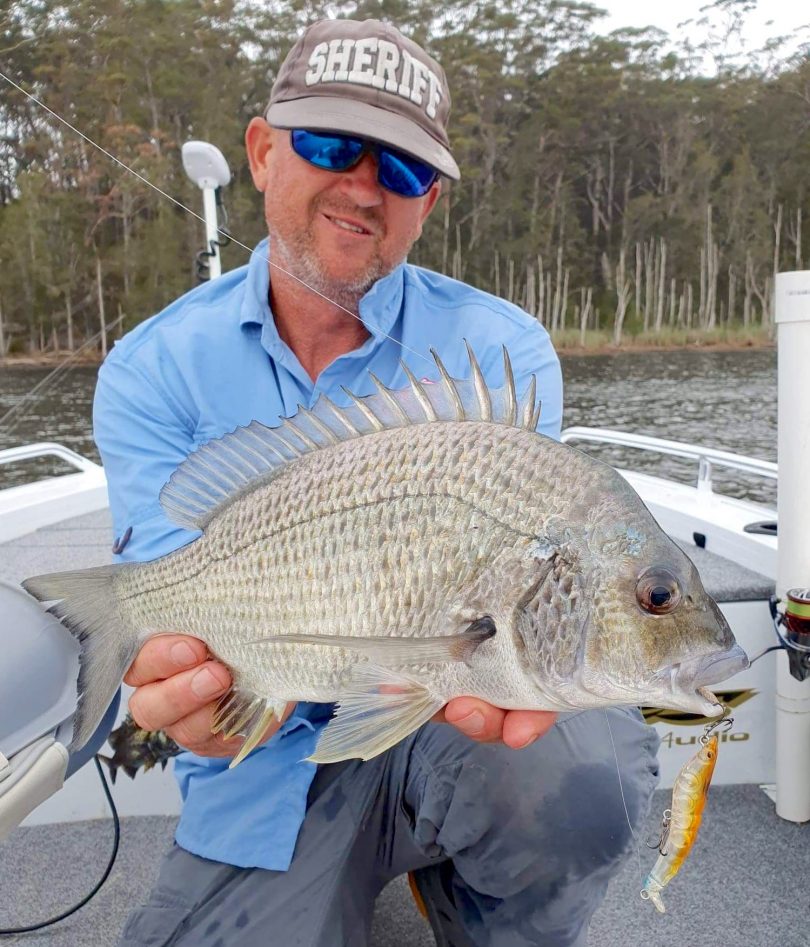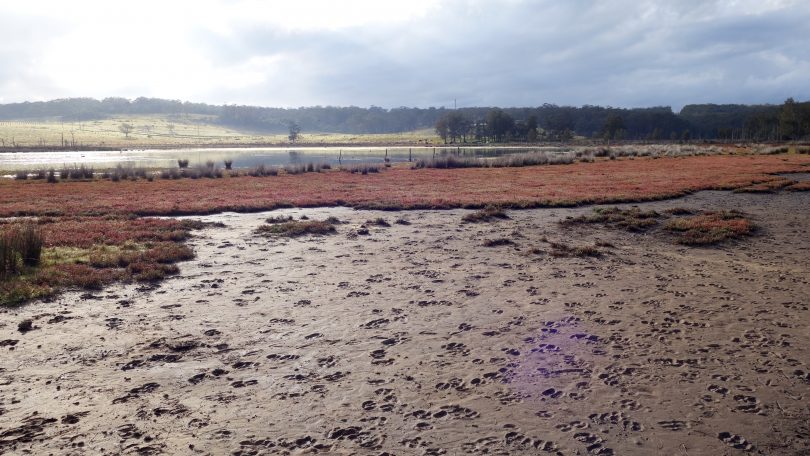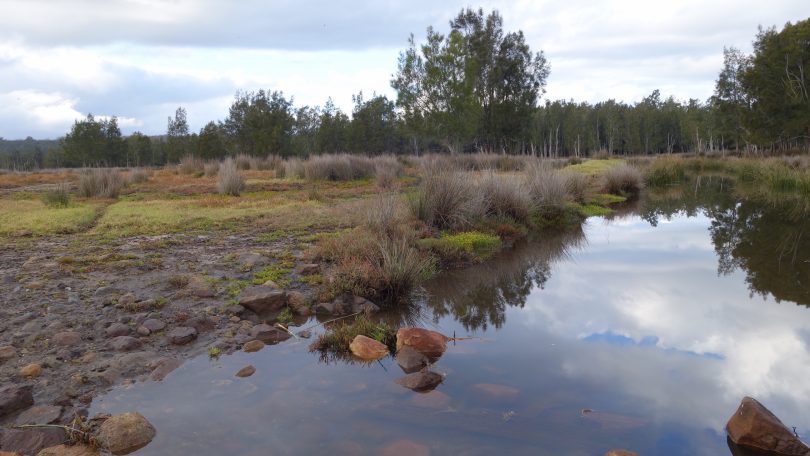
Local angler Glen Sherriff with a very healthy-sized bream caught in Burrill Lake on the NSW South Coast. Photo: Supplied.
Anglers are being asked to be part of an important citizen science research project that will determine the effects of cattle grazing and other forms of farming on a strip of the NSW South Coast, at Burrill Lake.
The saltmarsh habitat at Burrill Lake is in a degraded state, primarily due to cattle grazing, according to Angus Fanning, OzFish project manager for coastal NSW.
As part of the project, restoration work will be carried out at the site, including fencing. Samples of fish caught at the lake will be analysed to determine the impact of habitat restoration on the fish.
To do that, local and visiting recreational anglers at Burrill Lake are being asked to collect small samples from their catch and drop them into Big4 Bungalow Park on Burrill Lake for habitat research.

A saltmarsh that has been impacted by grazing cattle disturbing sediments and limiting new plant growth. Photo: Supplied.
Mr Fanning said saltmarshes are vital to fish habitat and a nursery area for baby fish.
“More than 70 per cent of all recreationally targeted saltwater fish species are thought to rely on saltmarshes for at least some of their life cycle,” he said.
“We need fishers to take samples from fish caught in Burrill Lake. It doesn’t matter the species caught, but the more the better.
“The sample needed is just a small piece of flesh from the fish the size of your thumbnail from above the lateral line.”
The important citizen science research will take place during the next 12 months.
Developed by the University of Newcastle in partnership with Australia’s fishing conservation charity, OzFish Unlimited, the data will provide a better understanding of the benefits of saltmarsh habitat restoration for both fish and recreational fishers.

Burrill Lake saltmarsh is a fragile wetland essential for the habitat of many fish species. Photo: Supplied.
“Put the piece of flesh in a clean, plastic zip-lock bag with the date, measurements and location/zone where the fish was caught, and drop it off at Big4 Bungalow Park on Burrill Lake, where they will be collected by researchers and taken back to the university for analysis,” said Mr Fanning.
“It’s a great opportunity for anglers to give back to the fish and the waterways they love.”
This collaboration between the recreational fishing community and researchers will ultimately lead to a more comprehensive understanding of saltmarsh habitat restoration. The research team is also interested to learn more about the importance of saltmarshes for fish diets.
Lead researcher from the University of Newcastle, Associate Professor Troy Gaston, said by measuring stable isotopes – naturally occurring chemical tracers – the study will be able to determine the importance of different food sources for different species.
“Using gut analysis can show what a fish has been eating, but it doesn’t indicate which food items were the most important,” he said.
“The more recreational fishers who take part, the better quality data we will be able to collect, and ultimately improve how restoration projects are undertaken.”
You can learn more about the project, the best ways to take a sample, and how you can get involved by visiting the OzFish Burrill Lake project website, or calling 1800 431 308.






